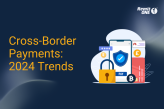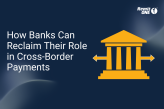Interview with Faisal Khan, Payments Consultant August 8, 2014

Aamer Abedi, RemitONE’s Marketing Director, interviews Payments Consultant Faisal Khan on Bitcoin, regulation and the what the future holds for the remittance market.
Aamer: Cryptocurrency is a hot topic these days. Canada has recently endorsed cryptocurrency. But then there is all this negative publicity on Bitcoin. There is talk about regulators and banks not wanting to entertain cryptocurrency. Do you see cryptocurrency making inroads into the remittance space or is it too soon to tell? What are the signs that we should be looking out for?
Faisal: There is a considerable difference in crypto-currency and crypto-currency based protocols. Many people get it wrong the first time when asked what is Bitcoin? They reply “crypto-currency” or “money”. In fact, Bitcoin is a protocol first. Just like HTTP, SMTP, FTP. It just happens to be that the very first app made on this protocol is money. If you look at the Bitcoin protocol or Ripple protocol, it is literally the much needed payment rails for the modern day. Using such protocols, remittances can effectively be channeled across borders in a very efficient manner (read: more economical and much faster). I don’t think Bitcoin, et. al. would become mainstream in say the next 1-3 years for remittances, but their popularity will arise. If you look at the remittance payment stack, the net settlements are still being done via SWIFT. If one could replace the SWIFT settlement rails with a more efficient protocol, such as Ripple (or even Bitcoin), this would literally lower the current transfer pricing by a factor of /10 or maybe even /100. Banks will use anything that can make them money and provided it is regulator approved. Bitcoin is surely gaining regulatory approval worldwide. Two very important financial constituencies like California and New York have both approved Bitcoin towards the legalization process. One could not have asked for a more authoritative endorsement.
Most bankers (and this would include central bankers), just do not understand Bitcoins and how it works. When they can’t understand it, they cannot make a judgment call on it. This is why you will see, so many central banks of the world have reserved their opinion on bitcoins.
Those countries who are afraid of flight capital have outright banned it. This list is followed by those countries who had a knee-jerk reaction to Bitcoin and in their myopic reaction, banned or outlawed the Bitcoin all together. It is only a matter of time when this would be met with a reversal.
The best signs one can look out for is the slow but evolving regulatory coverage that bitcoins are slowly but surely getting. Now is the best time to get on the bandwagon and set your strategy on how to incorporate and/or use bitcoins.
Aamer: Do you think MTOs in sending markets like the US and Europe have a chance to survive in the current payments landscape? If yes, what is it that they would need to do differently to ensure their survival?
Faisal: Cross-border payments are being regulated because MTOs lobby for the same. Its’ a classical case of horse buggy-whip makers lobbying to ban the automobile. Prices of remittances are coming down. If you extrapolate the current downward trend, it would only be a matter of years before the price would plummet below 0.25% mark for an average remittance transfer. Because of the declining income, MTOs have resorted to higher number of transactions to offset the loss and seek protectionism in their respective markets.
Having said this, the ability to send payments globally is increasing rapidly and is a tool that is within everyone’s reach. For MTOs, there is a clear writing on the wall, nothing lasts forever. They must evolve themselves and add value to the transfer, else they would see themselves victims of complacency and obsolescence. Very few MTOs are reinventing themselves. Those who do, will survive and prosper, others will fade into oblivion. This is the bitter truth.
Value-add can translate into many facets for an MTO. Implementing and integrating with social platforms is extremely important, incorporating social signals for better data gathering and event based payments. Harnessing the latest payment rails is extremely important. Alliances that offer value-add to each remittance is something that is pretty much a de facto nowadays. Rolling out a loyalty program that is in tune with the sign-of-times and connects to programs engines like air miles, phone minutes, hotel stays and social giants like FourSquare, etc.
Aamer: Will we be seeing a lot of mergers and acquisitions in the sending markets? If the industry is left with only a handful of MTOs, migrant workers will fear a monopoly by a handful of big players. Do migrant workers have anything to worry about?
Faisal: This is the Damocles sword for many Tier 2 and Tier 3 MTOs. The industry is heavily regulated and that leads to natural fears that the market will be monopolized for many corridors. The balancing act to negate this fear is that Remitters today are much more cognizant of the alternatives and will seek the path of least cost (be it official or unofficial). Tier I MTOs will take time to change direction and herein lies the opportunities for Tier II/III MTOs to take advantage and forge ahead. Migrant workers will always find a way to beat monopolies if they can. However, as cited earlier because of the heavy regulation, this may not be so easy. The one comforting factor all around the world we are seeing is the adoption and transfer recognition of Bitcoin. Whether or not it is adopted or not, is a different story, but the distributed nature of the protocol/currency is pretty worrisome situation for the large MTOs.
Aamer: MNOs and MVNOs role are rapidly entering the remittance landscape as they bring reach and penetration which banks don’t necessarily have in receiving markets. There are MTOs and MVNO partnerships already proving to be successful. Do you think MNOs from sending markets will be entering this space too? How will the industry dynamics shift with these new entrants?
Faisal: I think the mobile phone is the next payment instrument. Just like a few decades ago when Frank McNamara introduced his Diner’s Club International Card was considered a delivery channel rather than a payment instrument, I think we are seeing the same transformation take place with the mobile phone. Very soon you will see that the intrinsic value of money and your identity will reside inside with your mobile phone. The mobile phone is currently a delivery channel, and long before you know it, it will be a payment instrument of choice. I think MNOs have lost the game already. Because of the sheer fact that money apps on smartphones are agnostic to the carrier, other than distribution load/off-load points there is little value an MNO can provide. I don’t think MNOs from the Sending (Remitting) markets will enter the space, because of the sheer burden of regulatory compliance and management of running a many-to-many cross-border payment network. The industry as a whole has a dichotomy to deal with, which is the user and money is both becoming agnostic to the financial institute/MTO as well as the transport channel.
Aamer: Despite the regulatory challenges in the industry, the demand to enter this vast sector is unprecedented. This is evident from the number of enquiries we at RemitONE get from start-up businesses around the world. These businesses are coming up with innovative ideas but regulation is too slow to catch up in many markets. Your comments?
Faisal: I blame World Bank Remittance Report for this barrage of inquiries (not that it is a bad thing). Everyone looks at this $500 Billion industry and thinks “How can I can a piece of this pie?” What takes back many in this game is the inertia of licensing, regulation and compliance. The sheer amount of domain knowledge required to run a successful MTO is not something that can be gained overnight. Businesses that enter this game will learn, by association, that building is easy, driving repeat traffic (i.e. transactions) on the system is a monumental task. The Regulator will always be a step behind the demand.
Aamer: With technology making rapid inroads into the remittance space, the opportunities are endless for MTOs, banks and MVNOs. Software as a Service or Cloud solutions allow money service businesses to not worry about technology and focus on their core business. Do you think MSBs are getting acclimatized to the SaaS concept of paying a perpetual fee to vendors instead of buying licensed software systems?
Faisal: I think technology has been something that businesses in the money transfer space have not fully taken advantage of. Even the technology framework implementation today is lagging behind. I don’t see this changing any time soon. However, those companies that are willing to look into technology more deeply, especially the prevalent mobile and web services that are available in the rapid application development frameworks, will succeed in the coming years. The UI/UX experience today is disappointing at best. Very few companies offer a well-thought of, well-researched UI/UX experience. I am of the firm believer that companies that invest in technologies with the tools available today to say the likes of the start-up community in the Bay Area (for example) will be able to churn out money apps that are in tune for Gen X/Y and are utilizing the true power of the web and mobile spaces. Most technology companies in the money transfer space are still using (in my opinion) antiquated development frameworks and the entire SDLC is increasing for newer and more frictionless roll-outs.
Aamer: In terms of agent and correspondent partnerships, do you think the remittance industry is heading towards a non-exclusive partnership model? What can the MTOs do to retain their existing agent partnerships?
Faisal: I think this is dead-beat. The days of exclusivity are over. Only value-add will allow MTOs to retain their crown (even in a crowded, non-exclusive market) and this would primarily be focused on hiring brand managers who would instill loyalty and retention into your money transfer products. Give clients a “reason” to continue to do business with you. Free markets concept has caught up and many are fearing this. This is something that should be welcomed with open arms, as it gets the MTOs out of their comfort zone and makes them rethink and reinvent themselves in face of looming competition.
Aamer: Do you foresee more disintermediation in the industry or will we see a landscape where everyone is coming together and making use of each other’s networks?
Faisal: I think inter-connectivity is bound to happen and there is nothing you and I can do about it. This is how the market will conform – distributed, yet connected. We will see more and more MTOs offering a niche service (network? payout locations? gateway services? value-add for specific corridors?, etc.)
Aamer: From the MTO’s perspective, it is a catch 22 situation when dealing with the regulator and the bank account provider. Many MTOs are having their bank accounts shut down and they are attending events and searching for consultants to seek answers and solutions. Is the future bleak for these MTOs? What would you say to them?
Faisal: This is a tough one. This phenomenon is happening all over the world. If MTOs can demonstrate AML/KYC programs that “exceed” the minimums as set by the Regulator, your chances greatly improve. Having talked to literally 100s of MTOs, it is no hidden secret that a lot of corners are cut, whilst on paper, all seems very strict. MTOs become obtuse in their handling and hence lose out on financial services from banks, because of this oversight (on the whole). I believe better lobbying is absolutely essential, investments into purchasing banks (credit unions, smaller banks) themselves is also necessary. The bar right now on Tier I and Tier II providers is very low. This needs to be improved. It will not happen overnight, but first there must be consensus in the industry that MTOs need to be a single voice and then bring about self-policing and improvement from within. It is a tough battle, but with continual improvements in transaction management systems, more stricter AML/KYC policies that are “actually” implemented and a decrease towards cash-payouts will immensely help in building your case.
Aamer: What message would you have for software vendors in the remittance space?
Faisal: I think it is imperative that MTOs look and frequent the start-up technology companies. Get to understand that latest technology that is prevalent out there. What the UI/UX processes look like. How the Information, Software and Application architects are building the apps of today. A/B testing is almost non-existent with tech companies. The challenge from the likes of Transferwise, Azimo, CurrencyCloud, etc. is because of their better investment in their technology stack that is reflective of the day and age we are in. APIs, especially RESTful APIs is also very important. Look at vendors like Apigee and understand the data & transactional power of APIs. Many just don’t get it. Working on technology stack of yesterday is in many ways conniving.
Another very important aspect is the ability to interface. Most fintech companies in the money transfer software space have low or zero payment gateway modules built directly into their software. Just like a good shopping cart software like Magento, et. al. will have payment gateway plugins for the likes of PayPal, VISA/Mastercard (authorize.net, etc.), ACH, Check, etc. – money transfer software companies need to implement the same. This is such a crucial element for going live that is missing out. Companies that will be able to offer APIs and plug-ins for such gateway connectivity will literally have a huge advantage over others. This is the kind of value add that one needs to keep a sharp eye out for.
Whilst we all would like to believe our software is the best, but by comparing it not to the competitors but to the technology stack as used by fintech companies, is one able to benchmark where one stands. It should not be taken in a negative connotation, but as a goal-oriented mission to bring your technology stack to be equal or better than the very best out there. Raise the bar.
—
 Faisal Khan is a leading technopreneur, payments consultant & digital money evangelist, co-host of Around the Coin, a weekly podcast on Banking, Money & Payments. He is also the resident payments expert on Quora. Faisal specializes in the design and solution architecting of Payment Systems & Networks based on the current payment rails, and on advance rails such as Bitcoin, Ripple, ATM-hosts, etc. Solution offering is based on either in-person, online/web, mobile or a combination of these elements. Previously, Faisal had spent 15+ years in the IT (Financial Services) sector, before formally moving into the financial services consulting sector in 2011.
Faisal Khan is a leading technopreneur, payments consultant & digital money evangelist, co-host of Around the Coin, a weekly podcast on Banking, Money & Payments. He is also the resident payments expert on Quora. Faisal specializes in the design and solution architecting of Payment Systems & Networks based on the current payment rails, and on advance rails such as Bitcoin, Ripple, ATM-hosts, etc. Solution offering is based on either in-person, online/web, mobile or a combination of these elements. Previously, Faisal had spent 15+ years in the IT (Financial Services) sector, before formally moving into the financial services consulting sector in 2011.
Faisal holds a Bachelors & Masters in Electrical Engineering with a specialization in Electromagnetics from the Florida Institute of Technology. Driven by eclectic passions ranging from Jazz, Quantum Physics & Internet Marketing, Faisal spends his days designing and deploying bespoke payment networks/systems, online & mobile peer-to-peer payment systems.
When he’s not avidly contributing content to Quora, Faisal mentors and trains the next generation of technopreneurs, especially in the Payments vertical. As part of his personal reaching-out efforts, he also provides pro bono advisory services to new start-ups within Pakistan and abroad. His blog can be accessed at faisalkhan.com
Faisal Khan’s LinkedIn Profile can be seen here: http://pk.linkedin.com/in/faisalkhan99
Faisal Khan’s Quora Profile can be seen here: http://www.quora.com/Faisal-Khan-1
Related Posts
-

How to Build a Leaner, Smarter Money Service Business in 2025
In an era of rapid regulatory change, rising customer expectations, and digital disruption, how can money service businesses (MSBs)—companies that…
May 22, 2025 -

Trump’s Threats to Cross-Border Payments: What It Means for Your Business
It’s been a short while since Trump stormed back into office, and he’s already shaken things up with his hard-hitting…
May 22, 2025 -

Unlock Faster, More Secure Payments with RemitONE’s Open Banking Solution
We’re excited to introduce the latest enhancement to our RemitONE Money Transfer Platform: the RemitONE Open Banking Solution. Competitively priced…
January 31, 2025 -

How to Expand Your SEND Operations in the UK and Europe—Without the Regulatory Hassle
The remittance market in Europe is valued at €133.7 billion annually, with the UK market contributing an additional £23 billion.
January 31, 2025 -

The Top 5 Cross-Border Payment Trends That Shaped 2024
What a year it’s been for the world of payments! From breakthroughs in tech to surprising shifts in consumer behaviour,…
December 19, 2024 -

How Banks Can Reclaim Their Role in Cross-Border Payments with RemitONE
Banks, once the cornerstone of international payments, are finding themselves sidelined. Senders and receivers have now joined forces, pushing banks…
December 18, 2024